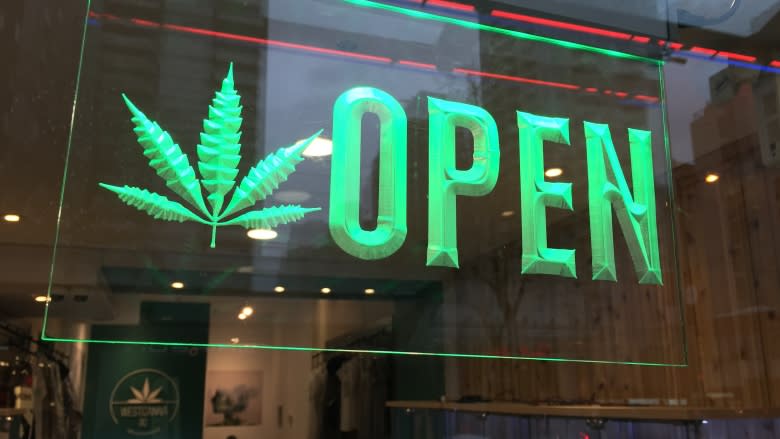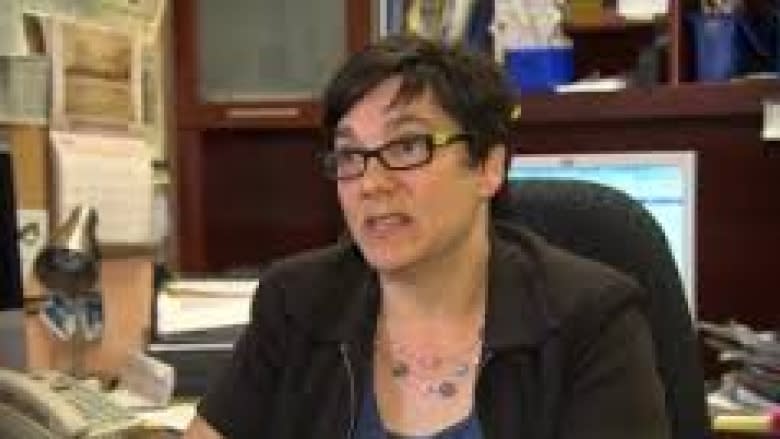Cities grapple with bylaw and regulation changes as they race to make legal pot deadline
While the federal government gives more details on its proposed regulations for legal pot, some Canadian cities are already taking steps to make sure they are ready for next July's deadline.
Before pot can be sold and consumed across the country, cities need to tackle bylaws that regulate everything from zoning to workplace health and safety to where people can and can't consume the drug.
The city of Edmonton, for example, has amended a zoning bylaw to clearly define what it means to be a pot retail store in the city.
"We've defined them as a unique creature not unlike liquor stores, so existing paraphernalia shops can't simply transition into [one], or convenience stores can't just decide to add a cannabis component to their business," said Colton Kirsop, a senior planner with the City of Edmonton.
'A tight timeline'
Edmonton is also in the middle of public consultations on where those new retail shops should be located in relation to parks, playgrounds and other areas.
Calgary Mayor Naheed Nenshi told CBC News that he expects his city's amended bylaws will be in place by the time pot is made legal in July next year. "We can make it work, but it is a tight timeline," he said.
Kitchener Mayor Berry Vrbanovic said his municipality is looking at where cannibis stores will and should be located, and Winnipeg is doing the same.
Winnipeg chief planner Braden Smith said the city is working on a cannabis retail plan that should determine where cannabis shops can exist, how far they have to be from schools and possibly even how large a neon cannabis leaf can be in a retail-store window.
Regulating pot smoking
Back in Edmonton, there's a working group of 27 staff, looking at a range of city departments that will be affected, from land-use planning to human resources. Kirsop said legalizing marijuana "really cuts across pretty much every city department in some form or another."
Edmonton is also in the middle of public consultations on where people will be allowed to consume pot.
"We're wondering do we just apply the same models that we got for other regulated substances like cigarettes and alcohol. Or do we end up with a customized outcome that borrows a little from each of those and has some of its own unique features?" Kirsop said.
The Federation of Canadian Municipalities (FCM) has put together a primer to help cities get ready for cannabis legalization. The six-page document urges municipalities to "begin their internal process immediately to ensure that regulations, laws, and bylaws are in place by the time the federal cannabis legislation comes into force."
A challenge for small cities
The primer recommends municipalities seek legal advice, put together working groups and begin public consultations right away.
"Local governments are on the front lines of implementing this. We are where cannabis will be used, and sold, and we are where the new rules will be administered and enforced," said Jenny Gerbasi, FCM president and deputy mayor in Winnipeg.
FCM has its own internal working group looking at this issue and putting together a more detailed guidebook for municipalities to be released early in the new year.
"We are doing everything we can to assist cities of all sizes. It's a challenge for all of our members," Gerbasi said, admitting it will be tougher on smaller municipalities to get ready in time.
"I think it's a challenge. They just have less staff, and maybe they aren't as accustomed to working on their zoning bylaws as frequently as a big city," Kirsop said, noting that he has already received calls for advice from three small municipalities around Edmonton.
Outstanding issues
For all the work Edmonton has done already, Kirsop said much remains to be addressed there. "We've got human resources considerations in terms of impairment in the workplace," he said.
The Edmonton Fire Department also has an issue it wants to address through a public awareness campaign before legal pot is available: the dangers of extracting cannabis oil at home.
"In terms of extracting oils from the cannabis plant, there's some methods that are more dangerous than others, and I think they want to get their head around that, and get information out there," Kirsop said.



